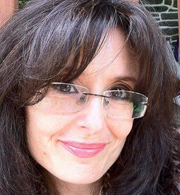 Ted Flowers holds his daughter, Christine, in this family photo.
Ted Flowers holds his daughter, Christine, in this family photo.
Ted Flowers was a scrappy kid from West Philadelphia who basically raised himself, having been left in foster homes by parents who weren't ready to be parents. He was influenced by the good priests at St. Tommy More, although not quite enough to keep him out of trouble as a teen. His decision to go to law school was probably a smart one, since he might have ended up on the other side of the criminal code had he followed his youthful tendencies.
Shortly after graduating from Temple and before starting his career (one that is still legendary even though achingly brief), Daddy joined the Lawyers United for Civil Rights and went down to Jackson, Mississippi, to help register voters. It was 1967, and the real life Philadelphian encountered a deep south that was experienced by fictional Philadelphian Virgil Tibbs in the film "In the Heat of the Night."
Daddy was a white Irish Yankee, but he saw what was happening to what were then called Negroes below the Mason-Dixon line: Intimidation, threats, violence, death. This was what met the folks who dared exercise their then-tenuous right to vote, a right that had to be buttressed and reaffirmed in the Voting Rights Act.
Daddy was there to help those folks register to vote, and then actually make it to the primaries in one piece. His journals, from which I've quoted in previous articles, talk about the wall of hostile humanity his clients had to face when they ascended the courthouse steps.
My father was a hero, although he never spoke about it, just as combat veterans rarely speak about their days of gunfire and anguish. My views on voting are therefore something deeper, something more profound than many people who just assume we have that right, and maybe we'll use it, maybe we won't. Those views have been amplified by the clients I have worked with as an immigration lawyer. About 15 years ago, I represented an asylum applicant from Albania, who had been a poll watcher in his hometown outside of the capital Tirana.
A rival political group beat him so viciously that he lost all of his teeth. He was a 22-year-old man who had to wear dentures because they had beaten his teeth out of his head. Imagine the force it takes to do that. And yet, he never regretted being there, and doing what he needed to do.
I had another client a few years later, whose family was still living in Iraq. She showed me a cell phone photo of her sister, with that famous blue stamped finger, proof that she had voted in a free election. She was so proud.
Still another client from Kenya had been the campaign manager for her brother, who ran for office as an opposition candidate to a very brutal incumbent. She had been raped because of her advocacy, and still, she continued to speak out. Voting was that important to her.
Not one of these people mailed in a vote. Not a one refused to show up in person, putting their bodies on the line, bodies that were beaten and bruised, crushed and coerced, to make that mark of citizenship, that indication that they exist as civic creatures, that powerful statement of "I matter." Not a one.
You might say that mail-in voting didn't exist back in the 1960s when Ted Flowers was in Mississippi, and you would likely be right. You might say that what happens in other countries is irrelevant to what is happening in the United States, and I can't fault you there. You might say, over and over, "Pandemic!" and I would understand your fear of contagion.
But I actually don't understand why anyone would let the most important choice they make as citizens be left up to the postal service. It's not that I don't trust the mails, even though I have a suspicion that games will be played on both sides of the aisle. It's more the fact that I keep thinking of the things my father wrote in his journal, about elderly African Americans, some with canes and some in wheelchairs, putting their bodies on the line to vote in the shadow of the KKK.
It's that I remember the photos my Albanian friend showed me, the ones taken of him at the hospital with his mangled and bloody mouth. It's that I remember the look on the face of my Iraqi client, and her radiant smile at the memory of her sister. And it's that I remember the defiance in the eyes of my Kenyan friend, who still carried with her the burden of her fight, and her vote. I will be in line on tomorrow, at my polling place. I don't care how many hours I have to wait. I want to be certain that my vote is counted. And I want to honor the people who went through the hell I don't have to, in order to exercise their human right.
Putting a stamp on an envelope is far less than they are owed.
(COMMENT, BELOW)
Christine M. Flowers is a lawyer and columnist.


 Contact The Editor
Contact The Editor
 Articles By This Author
Articles By This Author